Cast Thy Burden upon the Lord
Hymn Info ~ Author ~ Composer

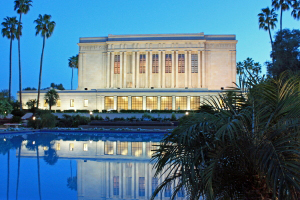 Life does not usually go as planned. The noblest goals can hit roadblocks; valiant strides of improvement can be sidelined by illness or injury. To quote a familiar phrase, it can 'rain on our parade.' What can we do when life seems unbearable? We can take our problems to the Lord, as our hymn "Cast Thy Burden upon the Lord" counsels.
Life does not usually go as planned. The noblest goals can hit roadblocks; valiant strides of improvement can be sidelined by illness or injury. To quote a familiar phrase, it can 'rain on our parade.' What can we do when life seems unbearable? We can take our problems to the Lord, as our hymn "Cast Thy Burden upon the Lord" counsels.
To cast your burden upon someone else sounds rather irresponsible, but looking at the text from a historical, figurative point of view can provide additional perspective. The text of the hymn was written more than 600 years before the birth of Christ. In those Biblical times, much manual labor needed to be done. People carried many things in their daily lives. Water had to be carried from wells, and other things such as sheaves, or bundles, of grain stalks were carried from the fields. We can imagine a scene where a load is too heavy for a worker in a field, a stronger fellow laborer comes to help, and that particular sheaf (burden) is thrown (cast) onto the helper's shoulder. The helper does not take over and do it all, but this sustaining help makes the work manageable.
In a like manner, when the challenges and responsibilities, figurative burdens of life, become too hard to do, or too heavy for us to carry by ourselves, we can through prayer call upon a stronger helper, the Lord, for assistance in bearing the load. As the picture suggests, a dedicated House of the Lord is a great place for such a prayer. The reflecting pool invites us to cast in our wishes, and the peace and reverence within the Temple set the stage for communion with God.
The text of "Cast Thy Burden Upon the Lord" is not a poem like many other hymns; it is a compilation of scriptural text from the Book of Psalms in the Bible.
The opening three lines come from Psalm 55:22, " Cast thy burden upon the Lord, and he shall sustain thee: he shall never suffer the righteous to be moved."
The fourth line comes from Psalm 16:8, "… because he is at my right hand, I shall not be moved."
The fifth and sixth lines come from Psalm 108:4, " For thy mercy is great above the heavens: and thy truth reacheth unto the clouds."
The concluding lines come from Psalm 25:3, " Yea, let none that wait on thee be ashamed: let them be ashamed which transgress without cause."
These Psalms, written by David, were voiced in regard to the challenges he faced on the battlefield and in view of the sustaining help he had received from the Lord. We may wonder at David's declaration that " he shall never suffer the righteous to be moved." It can seem to us that many good people suffer great losses in their lives, and many good souls have fallen in battle, so how can this statement be true? Perhaps there is a broader meaning that extends beyond individuals, and beyond this life. " The righteous" could refer to a righteous nation, who will prosper by the hand of the Lord and not be moved from His favor, even though they must fight to preserve their freedom. For righteous individuals, the promise that they will not "be moved," or not be suffered "to fall," can refer to their place in the Kingdom of Heaven, of which they are assured through repentance and the atonement of Christ.
Subsequent lines of the text present assurance that the Lord is always available to us, at our right hand. To be 'at our right hand' is to be reliable, even indispensable. We are also assured of the mercy of the Lord, which David refers to as "great above the heavens." This can be seen as a greater mercy than any earthly mortal could offer, even the mercy of God extending through the universe.
The concluding plea is for the Lord to fulfill His promises to those who "wait upon" Him, that they have no cause to be ashamed. To "wait upon" is to anticipate and to hope, and is also defined as 'to attend as a servant.' Both of these definitions apply to Christian disciples.
The music and text of " Cast Thy Burden Upon the Lord" were not originally intended to be sung by a church congregation, they comprised the fifteenth movement of the oratorio, "Elijah," by Felix Mendelssohn. As defined, an oratorio is a large-scale choral music art form, and consists of a series of overtures, arias, recitatives, and choruses presented by an orchestra, vocal soloists and a choir. It differs from an opera in that there is no action or scenery, but it has a similar musical style. The word 'oratorio' is derived from the Latin 'oratorus' which means a place of prayer. The subjects of oratorios have accordingly been sacred in nature, with texts often taken from Biblical accounts. Oratorios were quite popular during previous centuries and the most famous works were written between 1734 and 1854.
In 1768, the city of Birmingham, England, founded a three-day music festival to raise money to complete a new hospital. The successful event became popular and from 1784 ran every three years until 1912. In 1845, the festival commissioned the German composer Felix Mendelssohn to present a new work the following year, and his 'Elijah' oratorio premiered at Birmingham Town Hall in 1846, with the composer conducting the work himself. This was not his first appearance at the Birmingham Festival; he had participated several times previously and was already well loved by the English. He was becoming one of the most popular composers of the century.
The 'Elijah' oratorio was more than a year in development. It is said that Mendelssohn had started on it in the late 1830's. The final year he worked with the librettist Julius Schubring and translator William Bartholomew on English and German texts in parallel so the music suited the rhythms of both languages.
'Elijah' was written in two parts and presents a series of episodes from the life of the Old Testament prophet Elijah, taken from the books of First Kings and Second Kings. Although first performed in England, as mentioned above, the text was written in both English and German, as seen in the image below from a publication of the music, as found online at musopen.org. The heading translates as 'Elias, an Oratorio in the Words of the Old Testament. Opus 70. Contents, First Part.'
The musical terms were written in traditional Italian, for instance, 'Coro' means choir, 'Flauti' are flutes, 'Corni' are horns, and 'Fagotti' are bassoons.
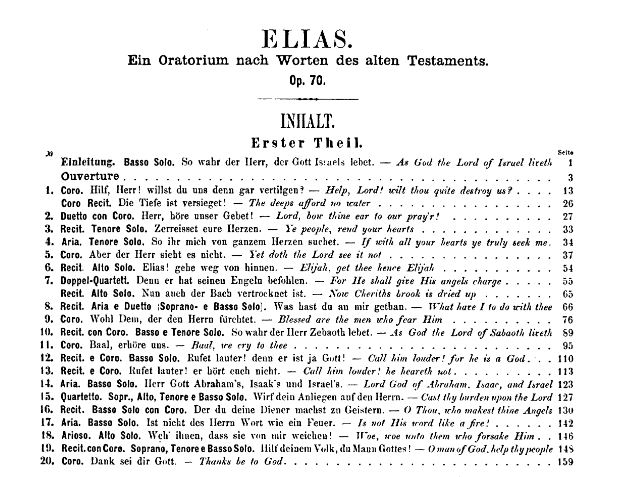
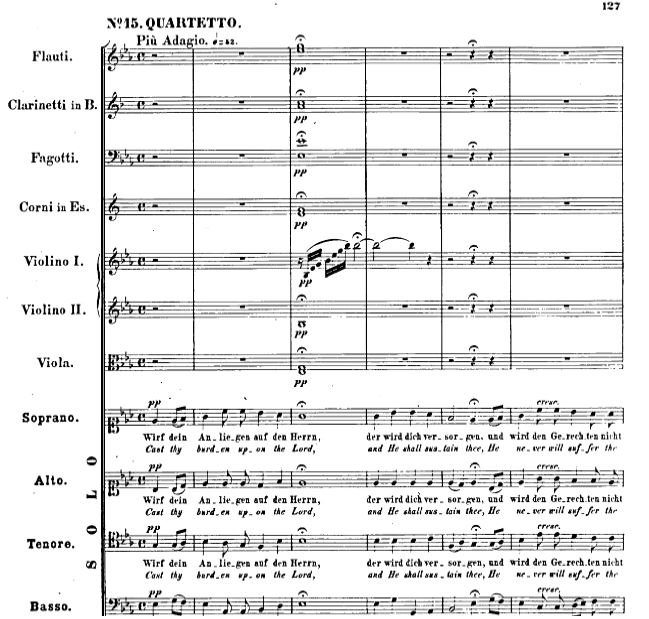
As noted on the music by 'Piu ´ Adagio,' this movement was to be performed more slowly. Leading up to this in the account of Elijah, the people of ancient Israel had turned to the worship of pagan idols, particularly Baal, during the reign of King Ahab and his wife, Jezebel. Elijah, the holy prophet of God at that time, confronts Ahab and challenges the priests of Baal to a contest to see who the real God is. Two altars and the sacrifice of two bullocks are prepared, and the priests of Baal call upon their god to consume the sacrifice with fire. Nothing happens, and Elijah mocks them, they cut themselves and cry louder, but still nothing. Then evening comes and Elijah prepares his sacrifice. At this point, after Elijah calls on the God of Abraham, Isaac, and Jacob, the pace of the Oratorio slows temporarily, and the movement ' Cast Thy Burden Upon the Lord,' is sung by a quartet representing angels. Elijah, by his actions trusts the Lord to bear this burden of proof before the people. As we know, his trust was rewarded as fire comes down from heaven and consumes the sacrifice, the water, the stone altar and the priests of Baal.
The four-part setting and style of this movement is unique in the work, and particularly suited for separate performance by church choirs. Although not immensely popular as a hymn, it must have been in frequent use in the churches of the time. By 1880, it was found in America, appearing in a collection of songs for worship, " Christian Praise", published in New York, according to hymnary.org. It continued into other hymnals through the years.
"Cast Thy Burden Upon the Lord" appeared in the 1948 edition of "Hymns, The Church of Jesus Christ of Latter-day Saints" (LDS Hymnal) arranged for choir and women's chorus. It continued in the same key into the current 1985 edition of the LDS Hymnal, arranged for congregational singing, with just a few modifications to the bass clef of the previous choir version.
The hymn tune is known as BIRMINGHAM, named after the festival where it was first performed. While the Elijah oratorio itself has been subjected to harsh scrutiny by musical critics over the years, it has remained a popular work for choral societies. The message of " Cast Thy Burden Upon the Lord" endures as a timeless assurance to present and future generations that prayers are answered.

|
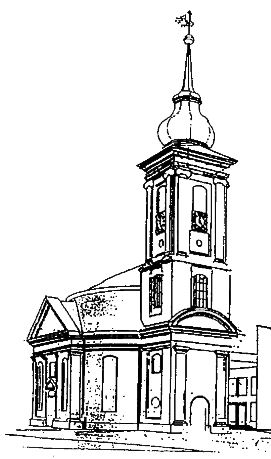 Julius Schubring was born in June of 1806 at Dessau, Germany. Dessau is a town with a rich history about forty miles
north of Leipzig and about seventy miles
southwest of Berlin. It
is located in a lowland plain at the junction of the Mulde
River with the Elbe
River, and is noted as one of the
greenest areas of Germany. Dessau was also the
birthplace of the Jewish philosopher Moses Mendelssohn, the grandfather of
Felix Mendelssohn. Julius Schubring was born in June of 1806 at Dessau, Germany. Dessau is a town with a rich history about forty miles
north of Leipzig and about seventy miles
southwest of Berlin. It
is located in a lowland plain at the junction of the Mulde
River with the Elbe
River, and is noted as one of the
greenest areas of Germany. Dessau was also the
birthplace of the Jewish philosopher Moses Mendelssohn, the grandfather of
Felix Mendelssohn.
Julius Schubring was evidently a very bright young man, and a man
of faith, as he is said to have studied in Leipzig
and Berlin. At
the age of about 24, he returned to Dessau
and began his career path in the Protestant ministry as a teacher, becoming a
pastor seven years later. He is said to have served as
rector at St. George's Church ( Georgenkirche), in Dessau. This
historic church was originally built in 1402 as a chapel for a hospital,
rebuilt in the 1700s, expanded in the 1800s. It was burned out
in the air raids of World War II, but has been restored and stands
today. (See image from the church website.)
Julius is said to have later served in the executive leadership of
the church, as a consistory councillor.
He is remembered as a theologian, a philologist (a specialist in
language used in literature), and a tutor. He is
particularly remembered for his association with Felix Mendelssohn and his work
as librettist for the oratorios: 'St.
Paul,' first performed in 1836, and 'Elijah,' first
performed in 1846.
He was also a father with at least one son, named after him, who
became well known as a scholar in his own right.
After a long career, Julius Schubring retired at the age of 77 and
passed away six years later in December of 1889. His
Biblical knowledge and literary contributions to the oratorios endure to bless
us today as we sing "Cast Thy Burden Upon the Lord." |

The Translator
Much of what we enjoy in the English text of " Cast Thy Burden Upon the Lord" is due to the work of the translator, William Bartholomew.
William was an Englishman born in 1793. A multi-talented man, he was an English librettist, writer, composer and a chemist. It is understood that it was as a chemist that he made his living. He found time for music, though, as it is said that he produced an oratorio of his own, as well as several hymns and children's songs. His wife, Ann Mounsey, is understood to have been an accomplished musician as well; she was an organist and composer.
William was obviously a well-educated man, fluent in German, and became acquainted with Felix Mendelssohn. He translated a number of texts for English performances of Mendelssohn's works, leading up to the work on the dual English/German libretto with Julius Schubring for 'Elijah.'
It is said that William also used his poetical skills in works with other composers such as Arthur Sullivan and Michael Costa.
He passed away in 1867 at the age of seventy-four.
The Text
Text as found in the 1985 LDS Hymnal
Cast thy burden upon the Lord,
And he shall sustain thee.
He never will suffer the righteous to fall.
He is at thy right hand.
Thy mercy Lord is great
And far above the heav'ns.
Let none be made ashamed
That wait upon thee.

The Composer
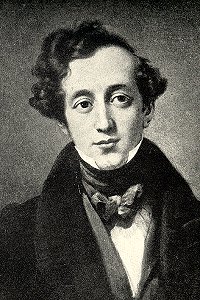 Jakob Ludwig Felix Mendelssohn Bartholdy was born to Abraham and Lea Salmon Mendelssohn in February of 1809, at Hamburg, Germany. His parents were of Jewish ancestry, and his grandfather was Moses Mendelssohn, a noted German Jewish philosopher.
Jakob Ludwig Felix Mendelssohn Bartholdy was born to Abraham and Lea Salmon Mendelssohn in February of 1809, at Hamburg, Germany. His parents were of Jewish ancestry, and his grandfather was Moses Mendelssohn, a noted German Jewish philosopher.
Felix was the second of four children. His father was a wealthy banker and the family home was said to be frequented by visitors of artistic, musical and scientific talent. He grew up exposed to a rich variety of intellectual stimulus. Their mother gave the children their first lessons in music and both Felix and his older sister, Fanny, showed precocious ability.
Although they had Jewish ancestry, it is said that the parents were not interested in the Jewish faith and the children did not have religious training in their early years. This was the time of the Napoleonic Wars in Europe. About 1811, when Felix was about five years old, the family left Hamburg and moved to Berlin. It is said that this was because of the Mendelssohn Bank and political issues with the French government. At that time, under the advice of his mother's brother, they began using the surname Bartholdy, which was the name of a property his uncle had inherited.
Living in Berlin, the family decided to adopt the Christian faith, and in 1816, it is said that a Reformed Church minister baptized Felix and his siblings, and Felix was given the additional names, 'Jakob Ludwig.' The parents followed suit with baptism in 1822, at which time they formally adopted the surname "Bartholdy." It is understood that this was done to make a decisive break with their Jewish background. As an adult, Felix chose to keep both names, Mendelssohn Bartholdy.
Growing up in an atmosphere of wealth and refinement, Felix had significant advantages in fostering his musical abilities in his early years. At the age of seven, it is said that he was tutored by a French piano teacher, and later by a former student of Muzio Clementi. It is reported that Felix was nine years old when he appeared at his first public concert. His first published work was a piano quartet at the age of thirteen. He wrote his first symphony at the age of fifteen.
His education also included classical literature, philosophy, languages, and art. He studied at the Humboldt University of Berlin, learning history, geography and aesthetics. He was a visual artist as well as a musical one and worked skillfully in pencil and watercolor. Considered a musical prodigy, he met many famous and influential people. At the age of twenty-three, he conducted a performance of ' St. Matthew's Passion' at Berlin, which is credited with beginning a revival of Bach's music.
Felix traveled widely throughout Europe and England, and his experiences are said to have inspired a number of his works. His visits to England were numerous between 1829 and 1847. He is said to have edited works of Handel and Bach for British publishers, and made many appearances in concerts, both conducting and performing. He was renowned as a pianist and organist, and amazed audiences with his improvisations. His Elijah oratorio in 1846 was well received, as described previously in this article. He met Queen Victoria and Price Albert, who were admirers of his music. His musical style was well suited to the Victorian era. He is considered one of the most well known composers of the early Romantic period; his works were known for their conservative, classical and lyrical qualities.
At various times Felix took professional appointments in Dusseldorf, Leipzig, and Berlin, working with choral and musical institutions and in 1843 founded a music school, the Leipzig Conservatory, working with Robert Schumann and Ignaz Moscheles. It is said that he did not greatly enjoy teaching, however.
Felix was close to his family and was much affected by the death of his father in 1835. His father's wish that he finish his oratorio, " St. Paul" led to a determined effort and it premiered under his direction at Dusseldorf the following year. He began his own family around this time, after meeting Cecile Charlotte Sophie Jeanrenaud at Frankfurt; they were married in March of 1837. Felix and Cecile would be the parents of five children.
Felix was a prolific composer and is said to have had an intense personal vision of music. He is understood to have lived at a feverish level, and is credited with about 750 works, including symphonies and other orchestral music, concertos, chamber music, piano music, organ music, two oratorios, and many vocal songs. A large number of these were not published until after 1960.
Felix Mendelssohn's personality was reported as sensitive and excitable, and he was recorded as having had occasional "fits of temper." After many years of intense activity, his health was affected. His final tour of England in 1847 is said to have left him exhausted and ill. He was very close to his sister, Fanny, and her death in May of that year caused great distress. It is understood that his health declined, and he suffered a series of strokes, passing away in November that same year, 1847, at the age of thirty-eight. Tragically, this left his wife of ten years as a widow with five children. Cecile and their youngest son did not long survive him, passing away less than six years later. Interestingly, none of the surviving children became musicians.
Felix Mendelssohn's music has received much praise and much criticism over the years. During the Nazi era in Germany, his music was banned and discredited due to his Jewish background. He had flaws, but remains as a remarkable historical figure given what he accomplished in his short lifetime. We continue to benefit from his talent, over 170 years later.

Information in this article came from:
' Hymns, The Church of Jesus Christ of Latter-day Saints, (Deseret Book Company, Salt Lake City, Utah, 1948, #235, #351)
' Hymns of the Church of Jesus Christ of Latter-day Saints, (Deseret Book Company, Salt Lake City, Utah, 1985, #110)
' Holy Bible, King James Version,' 1 Kings 18: 17-35, p. 497-8; Psalm 16:8, p. 721; Psalm 25:3, p. 728; Psalm 55:22, p. 749; Psalm 108:4, p. 787. (The Church of Jesus Christ of Latter-day Saints, Salt Lake City, Utah, 1979)
Webster’s New Collegiate Dictionary, (G & C Merriam Company, Springfield, Massachusetts, 1975)
Karen Lynn Davidson, ' Our Latter-day Hymns,' pp. 137-38, 411, 436. (Deseret Book Company, Salt Lake City, Utah, 1988)
J. Spencer Cornwall, ' Stories of our Mormon Hymns,' pp. 244, 293. (Deseret Book Company, Salt Lake City, Utah, 1963)
https://hymnary.org/text/cast_thy_burden_upon_the_lord_and_he_sha (accessed March 11, 2018)
https://en.wikipedia.org/wiki/Elijah_%28oratorio%29 (accessed March 11, 2018)
http://www.newworldencyclopedia.org/entry/Oratorio (accessed March 11, 2018)
https://musopen.org/music/43518-elijah-op70/ (accessed March 11, 2018)
https://en.wikipedia.org/wiki/Birmingham_Triennial_Music_Festival (accessed March 11, 2018)
http://www2.cpdl.org/wiki/index.php/Julius_Schubring (accessed April 29, 2018)
https://en.wikipedia.org/wiki/Dessau (accessed April 29, 2018)
http://www.georgenkirche-dessau.de/ (accessed April 29, 2018)
https://en.wikipedia.org/wiki/Consistory_%28Protestantism%29 (accessed April 29, 2018)
https://en.wikipedia.org/wiki/William_Bartholomew_%28writer%29 (accessed April 29, 2018)
http://www1.cpdl.org/wiki/index.php/William_Bartholomew (accessed May 6, 2018)
http://www.hymntime.com/tch/bio/m/e/n/mendelssohn_f.htm (accessed May 6, 2018)
https://www.britannica.com/biography/Felix-Mendelssohn (accessed May 6, 2018)